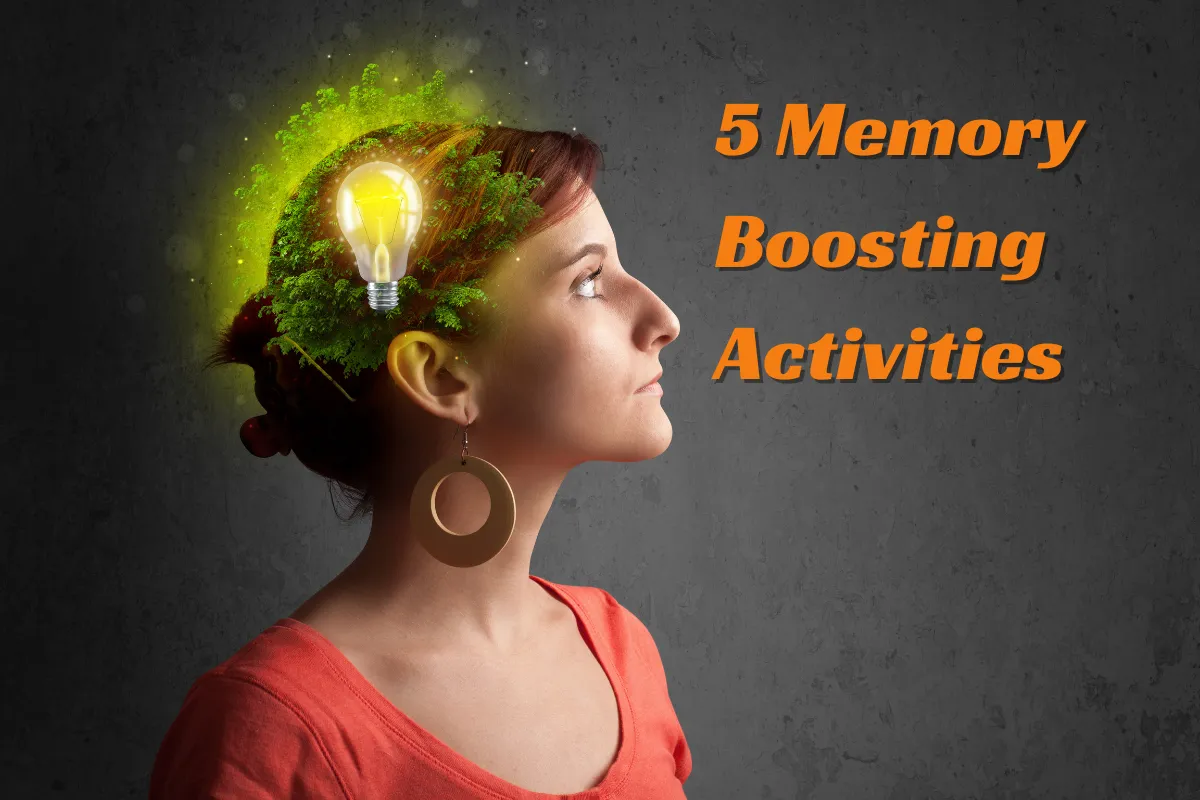Memory Lane: A Journey Worth Enhancing
The Memory Conundrum
Embarking on a quest to boost memory is like taking a stroll down memory lane.
In this article, we’ll explore five engaging activities that not only challenge your brain but also enhance its capacity to remember.
Let’s dive into the world of cognitive exercises and give your memory a well-deserved workout.
Mind Gym
Think of these activities as a gym for your mind, where each exercise flexes your cognitive muscles, strengthening your ability to recall and retain information.
1. Puzzle Power – Building Cognitive Resilience
Puzzle Playground
Engage in puzzles as if you’re entering a playground for your brain.
Crossword puzzles, Sudoku, and jigsaw puzzles are not just leisure activities; they’re cognitive workouts that stimulate various parts of your brain, fostering resilience and boosting memory.
Mental Flexibility
Picture puzzle-solving as a mental yoga session, enhancing your brain’s flexibility.
It’s the art of maneuvering through challenges, creating mental pathways that contribute to improved memory recall.
2. Learning a Musical Instrument – A Melody for Memory
Instrumental Symphony
Imagine learning a musical instrument as composing a symphony for your memory.
Whether it’s a guitar, piano, or violin, the process of mastering an instrument engages multiple brain regions, enhancing memory and cognitive functions.
Musical Memory Lane
Think of your brain as a musical score, with each note representing a memory.
Learning an instrument is like composing a beautiful melody that your brain will remember and play back when needed.
3. Mindful Meditation – Clearing Mental Clutter
Mental Oasis
Embark on mindful meditation as if you’re creating a serene oasis for your thoughts.
Meditation not only reduces stress but also clears mental clutter, creating a conducive environment for optimal memory function.
Mental Decluttering
Picture meditation as a mental Marie Kondo session, decluttering unnecessary thoughts and creating space for organized memory storage.
It’s the art of calming the mind to boost memory recall.
4. Aerobic Exercise – Cardio for Cognition
Brain Cardio
Engage in aerobic exercise as if you’re doing cardio for your brain.
Whether it’s jogging, cycling, or dancing, aerobic activities increase blood flow to the brain, delivering oxygen and nutrients essential for optimal cognitive function.
Neural Gymnastics
Imagine aerobic exercise as gymnastics for your neurons, promoting the growth of new connections.
It’s the cardio session that keeps your brain fit and enhances memory retention.
5. Storytelling Adventures – Memory Narratives
Memory Chronicles
Embark on storytelling adventures as if you’re creating chronicles for your memory.
Whether you’re writing your stories or engaging in group storytelling, the process stimulates your brain’s narrative memory, making information more memorable.
Memory Scripts
Picture storytelling as creating scripts for your memory to follow.
It’s the art of weaving information into a narrative that your brain finds captivating and, consequently, easier to remember.
Conclusion – Memory Mastery: A Journey, Not a Destination
Memory Marvels
In conclusion, these five memory-boosting activities are not just tasks; they’re marvels that can transform your cognitive landscape.
Remember, enhancing memory is a journey, not a destination.
Incorporate these activities into your routine, and witness the wonders they bring to your brain’s capacity.
Frequently Asked Questions (FAQs)
1. How often should I engage in memory-boosting activities?
Consistency is key. Aim for a balanced routine, incorporating these activities several times a week to experience optimal cognitive benefits.
2. Can memory-boosting activities help with age-related memory decline?
Absolutely. Engaging in cognitive exercises and memory-boosting activities has been shown to mitigate age-related memory decline and promote cognitive health.
3. Are there specific puzzles that are more effective for memory improvement?
Different puzzles engage various cognitive functions.
Experiment with a variety, such as crossword puzzles for language, Sudoku for logic, and jigsaw puzzles for spatial awareness, to target different aspects of memory.
4. How long does it take to see improvements in memory?
Individual responses vary, but many people notice improvements in memory and cognitive function after a few weeks of consistent engagement in memory-boosting activities.
5. Can these activities benefit individuals with memory disorders like Alzheimer’s?
While these activities may offer some cognitive benefits, it’s essential to consult with healthcare professionals for a comprehensive approach to managing memory disorders.




Nice article